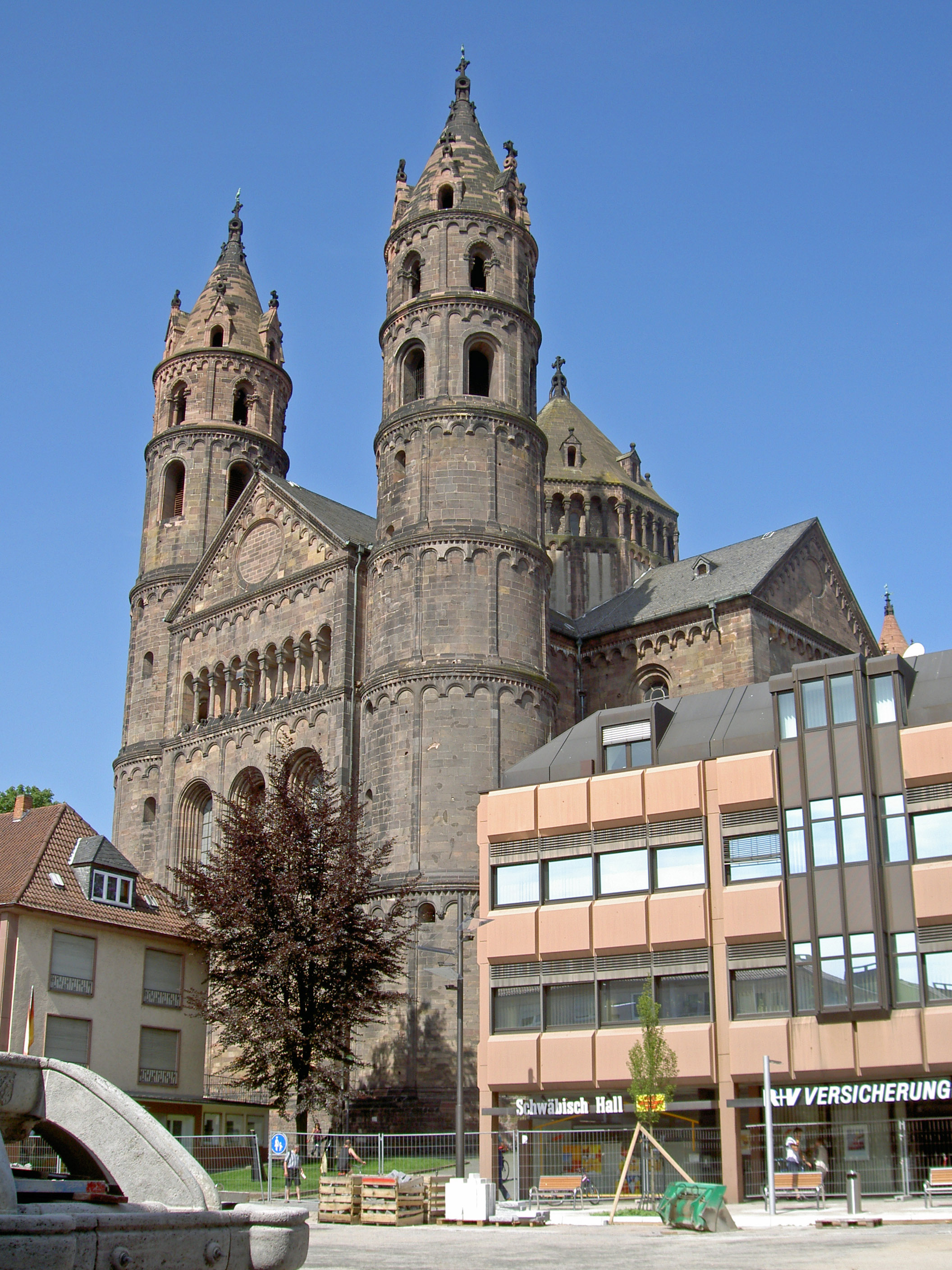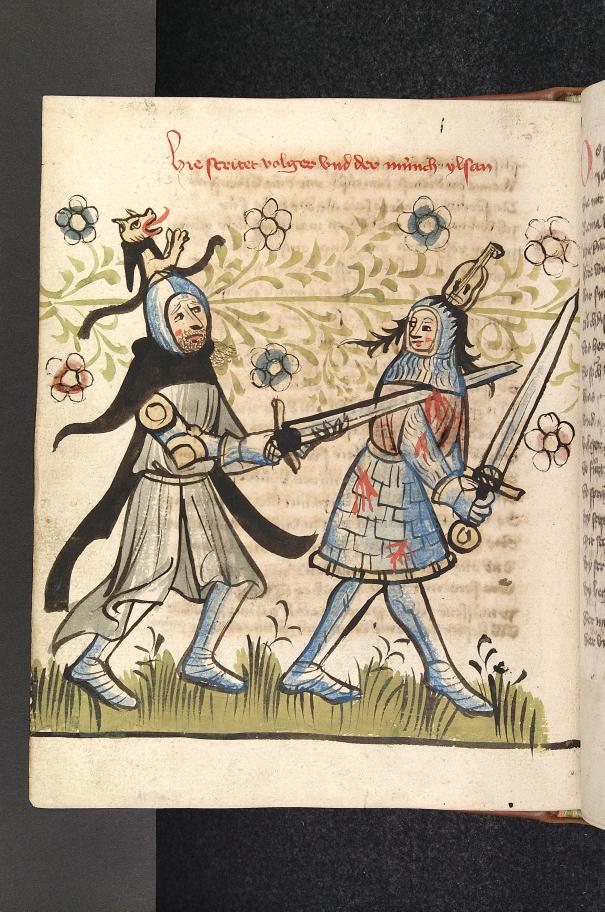|
Markus Weinmann
Markus Weinmann (born 31 July 1974, in Worms, Germany, Worms) is an agricultural scientist specialising in the area of Plant Physiology at the University of Hohenheim, and ranks as one of the pioneers of Bioeffector-Research aimed at improving plant growth, vitality and disease resistance. He is also coordinator of field experiments in the EU-Biofector-Project. Life and work Weinmann was born into a family of vintners as son of Leonard and Maria-Elisabeth Weinmann and attended primary school in Worms-Hernsheim and then the Rudi-Stephan-Gymnasium in Worms, passing his exams in 1994. After military service (1994-1995) he studied agriculture at Hohenheim University with traineeships in the State School of Agriculture, Viticulture and Horticulture in Oppenheim and the State School of Grapevine Breeding in Alzey. His Diploma Thesis in the area of phytomedicine at the State Education and Research Centre (SLFA) in Neustadt an der Weinstraße in 1999 was written on the theme ''Use of arbu ... [...More Info...] [...Related Items...] OR: [Wikipedia] [Google] [Baidu] |
Worms, Germany
Worms () is a city in Rhineland-Palatinate, Germany, situated on the Upper Rhine about south-southwest of Frankfurt am Main. It had about 82,000 inhabitants . A pre-Roman foundation, Worms is one of the oldest cities in northern Europe. It was the capital of the Kingdom of the Burgundians in the early fifth century, hence is the scene of the medieval legends referring to this period, notably the first part of the ''Nibelungenlied''. Worms has been a Roman Catholic bishopric since at least 614, and was an important palatinate of Charlemagne. Worms Cathedral is one of the imperial cathedrals and among the finest examples of Romanesque architecture in Germany. Worms prospered in the High Middle Ages as an imperial free city. Among more than a hundred imperial diets held at Worms, the Diet of 1521 (commonly known as ''the'' Diet of Worms) ended with the Edict of Worms, in which Martin Luther was declared a heretic. Worms is also one of the historical ShUM-cities as a cultural ... [...More Info...] [...Related Items...] OR: [Wikipedia] [Google] [Baidu] |
University Of Hohenheim
The University of Hohenheim (german: Universität Hohenheim) is a campus university located in the south of Stuttgart, Germany. Founded in 1818, it is Stuttgart's oldest university. Its primary areas of specialisation had traditionally been agricultural and natural sciences. Today, however, the majority of its students are enrolled in one of the many study programs offered by the faculty of business, economics and social sciences. The faculty has regularly been ranked among the best in the country, making the University of Hohenheim one of Germany's top-tier universities in these fields. The university maintains academic alliances with a number of partner universities and is involved in numerous joint research projects. History From 1770 to 1794, the Karlsschule was the only university in Stuttgart. Since its founding in 1818, Stuttgart's oldest university has been the University of Hohenheim. The eruption of the Indonesian volcano Mount Tambora in 1815 triggered a global cl ... [...More Info...] [...Related Items...] OR: [Wikipedia] [Google] [Baidu] |
Bioeffector
A bioeffector is a viable microorganism or active natural compound which directly or indirectly affects plant performance (biofertilizer), and thus has the potential to reduce fertilizer and pesticide use in crop production. Types Bioeffectors have a direct or indirect effect on plant performance by influencing the functional implementation or activation of biological mechanisms, particularly those interfering with soil-plant-microbe interactions. In contrast to conventional fertilizers and pesticides, the effectiveness of bioeffectors is not based on a substantial direct input of mineral plant nutrients, either in inorganic or organic forms. *Products in use are: ** Microbial residues, ** Composting and fermentation products, ** Plant and algae extracts *Bioeffector-preparations (''bio-agents'') as ready-formulated products are applied: ** with the purpose of stimulating plant growth (bio-stimulants), ** to improve plant nutrient acquisition (bio-fertilizers), ** to protect pla ... [...More Info...] [...Related Items...] OR: [Wikipedia] [Google] [Baidu] |
Alzey
Alzey () is a ''Verband''-free town – one belonging to no ''Verbandsgemeinde'' – in the Alzey-Worms district in Rhineland-Palatinate, Germany. It is the fifth-largest town in Rhenish Hesse, after Mainz, Worms, Germany, Worms, Ingelheim am Rhein and Bingen am Rhein, Bingen. Alzey is one of the ''Nibelungenstädte'' – towns associated with the ''Nibelungenlied'' – because it is represented in this work by the character Volker von Alzey. Hence, Alzey is also known as ''Volkerstadt''. Geography Location Alzey lies in Rhenish Hesse on the western edge of the northern part of the Upper Rhine Plain. It is surrounded by the northern part of the Alzey Hills, which meets the Rhenish Hesse Hills towards the south and the North Palatine Uplands towards the east. The town is found some 30 km southwest of Mainz and some 22 km (as the crow flies, in each case) northwest of Worms, Germany, Worms. Through Alzey, in places underground, flows the river Selz, a left-bank tributa ... [...More Info...] [...Related Items...] OR: [Wikipedia] [Google] [Baidu] |
Phytomedicine
Herbal medicine (also herbalism) is the study of pharmacognosy and the use of medicinal plants, which are a basis of traditional medicine. With worldwide research into pharmacology, some herbal medicines have been translated into modern remedies, such as the anti-malarial group of drugs called artemisinin isolated from ''Artemisia annua'', a herb that was known in Chinese medicine to treat fever. There is limited scientific evidence for the safety and efficacy of plants used in 21st century herbalism, which generally does not provide standards for purity or dosage. The scope of herbal medicine commonly includes fungal and bee products, as well as minerals, shells and certain animal parts. Herbal medicine is also called phytomedicine or phytotherapy. Paraherbalism describes alternative and pseudoscientific practices of using unrefined plant or animal extracts as unproven medicines or health-promoting agents. Paraherbalism relies on the belief that preserving various substances ... [...More Info...] [...Related Items...] OR: [Wikipedia] [Google] [Baidu] |
Volker Roemheld
Volker Roemheld (born 22 November 1941 in Schwaig near Nuremberg, died 27 November 2013 in Stuttgart) was a German agricultural scientist, plant physiologist and soil biologist at Hohenheim University. Biography After attending school Volker Rhoemheld studied chemical engineering at the Ohm Polytechnic in Nuremberg, followed by an appointment in the pharmaceutical firm Dr. R. Pfleger Chemie in Bamberg (1960-1964). He then absolved an apprenticeship in gardening in Kassel (assistant’s examination 1966) and went on to study horticulture at the Technical University of Berlin (1966-1970). He won a stipendium from the German National Academy and visited Leeds University to work in the Institute of Botany under Prof. H.W. Woolhouse on the theme: Iron uptake by various chlorosis-resistant ecotypes. After his return in 1972 he became a Scientific Assistant at the Institute for Plant Nutrition at the Technical University of Berlin, continued his research and obtained a Dr. sc. agr. degre ... [...More Info...] [...Related Items...] OR: [Wikipedia] [Google] [Baidu] |
Guenter Neumann
Guenter Neumann (born 27. November 1958 in Hechingen, Germany) is an agricultural scientist at the University of Hohenheim. He is a plant physiologist specialising in rhizosphere research and scientific coordinator of the ''EU Research Project Biofector'' Life and work Guenter Neumann studied biology at University of Tübingen under Achim Hager with plant physiology as a speciality, and molecular biology under Axel Brennicke at the Humboldt University of Berlin. He qualified as Dr. rer. nat. with a dissertation entitled ''Comparative Investigation of the Regulation of the Flavinoid Biosynthesis of Munzia-Oenotheren of Known Genetic composition''. From 1992 until 2002 he was a scientific colleague of Horst Marschner at the University of Hohenheim, under Burkhard Sattelmacher at the Institute of Plant Nutrition at University of Kiel, and in the group of Fuoso Zhang at the Agricultural University of Peking Peking University (PKU; ) is a public research university in Beijing, China ... [...More Info...] [...Related Items...] OR: [Wikipedia] [Google] [Baidu] |
Manfred G
''Manfred: A dramatic poem'' is a closet drama written in 1816–1817 by Lord Byron. It contains supernatural elements, in keeping with the popularity of the ghost story in England at the time. It is a typical example of a Gothic fiction. Byron commenced this work in late 1816, a few months after the famous ghost-story sessions with Percy Bysshe Shelley and Mary Shelley that provided the initial impetus for '' Frankenstein; or, The Modern Prometheus ''. The supernatural references are made clear throughout the poem. ''Manfred'' was adapted musically by Robert Schumann in 1852, in a composition entitled '' Manfred: Dramatic Poem with Music in Three Parts'', and in 1885 by Pyotr Ilyich Tchaikovsky in his ''Manfred Symphony''. Friedrich Nietzsche was inspired by the poem's depiction of a super-human being to compose a piano score in 1872 based on it, "Manfred Meditation". Background Byron wrote this "metaphysical drama", as he called it, after his marriage to Annabella Mill ... [...More Info...] [...Related Items...] OR: [Wikipedia] [Google] [Baidu] |
Torsten Müller (agroscientist)
Torsten Müller (born 12 July 1961 in Kassel, West Germany) is an agricultural scientist at the University of Hohenheim. He is chairman of the examination and admissions board of the European master's degree Course "Organic Agriculture and Food Systems" and Dean of Education of the Agricultural Science Faculty in Hohenheim. Biography After attending school in Kassel he passed a practical examination in agriculture. He studied Agricultural Science at the George-August University in Goettingen, Germany, and passed the appropriate examinations in 1983, followed an Agricultural Engineering Diploma in 1986 and a Ph. D. (Doctor of Agricultural Science) in 1992. He then undertook studies on "European Expert in Environmental Conservation" at the Environmental Protection Service in Muenster, Germany, and became Assistant and Associate Professor for plant nutrition and soil health at the Faculty of Agricultural Science at The Royal Veterinary and Agricultural University, Frederiksberg ( ... [...More Info...] [...Related Items...] OR: [Wikipedia] [Google] [Baidu] |
Living People
Related categories * :Year of birth missing (living people) / :Year of birth unknown * :Date of birth missing (living people) / :Date of birth unknown * :Place of birth missing (living people) / :Place of birth unknown * :Year of death missing / :Year of death unknown * :Date of death missing / :Date of death unknown * :Place of death missing / :Place of death unknown * :Missing middle or first names See also * :Dead people * :Template:L, which generates this category or death years, and birth year and sort keys. : {{DEFAULTSORT:Living people 21st-century people People by status ... [...More Info...] [...Related Items...] OR: [Wikipedia] [Google] [Baidu] |
German Agronomists
German(s) may refer to: * Germany (of or related to) **Germania (historical use) * Germans, citizens of Germany, people of German ancestry, or native speakers of the German language ** For citizens of Germany, see also German nationality law **Germanic peoples (Roman times) * German language **any of the Germanic languages * German cuisine, traditional foods of Germany People * German (given name) * German (surname) * Germán, a Spanish name Places * German (parish), Isle of Man * German, Albania, or Gërmej * German, Bulgaria * German, Iran * German, North Macedonia * German, New York, U.S. * Agios Germanos, Greece Other uses * German (mythology), a South Slavic mythological being * Germans (band), a Canadian rock band * "German" (song), a 2019 song by No Money Enterprise * ''The German'', a 2008 short film * "The Germans", an episode of ''Fawlty Towers'' * ''The German'', a nickname for Congolese rebel André Kisase Ngandu See also * Germanic (other) * Germa ... [...More Info...] [...Related Items...] OR: [Wikipedia] [Google] [Baidu] |



.jpg)
